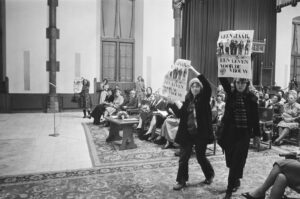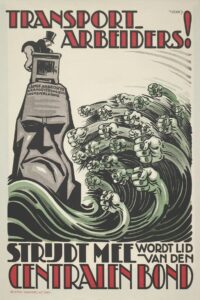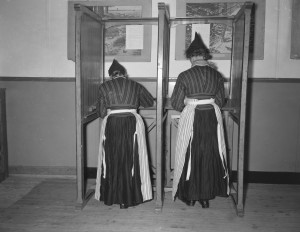While the Netherlands is known for its progressive and tolerant policies, this was not always the case. The country has a complicated history, including periods of religious and political turmoil and persecution of minority groups; some still occuring today. A few examples: Before 1795, only members of the Dutch Reformed church could hold public office. In the 1830s, the government oppressed people who had seceded from the Dutch Reformed Church. Seceder ministers would receive … [Read more...]
Dutch term – Affiche
An affiche is a poster. Affiches can tell you what was going on in a place where your ancestors lived, and they make great illustrations for your family history. … [Read more...]
Dutch term – Vrouwenkiesrecht
The term vrouwenkiesrecht means women's suffrage. Today it is exactly 100 years ago that women got the right to vote. The first elections were women actually got to vote was in 1920. General male suffrage was not that much older: only in 1917, men were given the right to vote without conditions on property or income. … [Read more...]
Dutch term – Kiesrecht
Kiesrecht means suffrage, the right to vote in political elections. In the Netherlands, the first democratic elections were held in 1795, but only a men owning property over a certain value were allowed to vote. It wasn't until 1917 that the right to vote was granted to all men, and women followed two years later. Voter registration records of these first universal elections have survived for several places and can be found in municipal or regional archives. … [Read more...]




